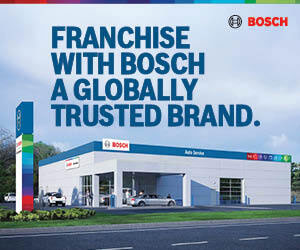What Nearly 100 Restaurant Leaders Say About Scaling with Intention

Being in the restaurant industry is all about hustle, determination, and hard work. But what about when it’s time to grow? Restaurant operators who have successfully scaled from one location to many talk less about hustle and more about structure. They focus on building systems, empowering leaders, and creating something that can grow without falling apart. The best ones don’t just grow fast; they grow on purpose.
In my position as a content marketer, I have the privilege of speaking with restaurant operators and founders every day. I have talked to more than a hundred of them over the past year, and one thing stands out: the advice around starting a restaurant is all about passion, grit, and building a strong team. But when the conversation shifts to growth, so does the mindset.
Shift from “running a restaurant” to “operating a business”
Scaling requires a different mindset. It is no longer about being involved in every daily decision. Growth depends on building a business that can run without the constant presence of the founder. That means investing in processes, frameworks, and leadership teams that ensure consistency from one location to the next.
One operator described the transition from one to two locations as the most difficult stage of growth. That jump surfaced hidden inefficiencies, inconsistent communication, and unclear expectations. The solution was to document proven workflows, eliminate guesswork, and set standards that team members could follow across every store.
Let go and delegate with purpose
Many successful operators have said that their early growth was limited by their need to control every task. One restaurateur noted that replying to every vendor email and approving every daily special seemed manageable at first, but became a bottleneck as the team expanded.
A turning point came when responsibilities were delegated to team members who were trained and trusted to make decisions. With that shift, leadership could step into a more strategic role and focus on growth.
Invest in team development early and often
Multi-unit success depends on people. Operators repeatedly emphasized the importance of clear, consistent training and development. Written SOPs, coaching, and hands-on practice are all part of building confident, capable teams.
One fast-growing operator reported that two-thirds of its leadership team had started in hourly positions. Internal promotions reduced turnover, protected company culture, and showed newer employees what was possible. When staff see a clear path to advancement, they are more likely to stay and grow with the company.
Get the numbers right before expanding
Regardless of concept or branding, strong unit economics are the foundation for sustainable growth. One executive described the trifecta of financial success: strong average unit volume (AUV), positive store-level cash flow (EBITDA), and a reasonable cost to open.
If any one of those elements is off balance, growth becomes harder to sustain. Concepts seeking franchise expansion should aim to hit financial benchmarks that attract operators. Many point to $1.5 to $1.6 million in revenue per unit and EBITDA above 20 percent as key thresholds for gaining franchisee interest.
Empower general managers to lead like owners
In a scaled system, general managers are often the single most important role. Several operators described the shift to a GM-driven model as a critical step in expansion. GMs were given more than operational tasks; they were given real authority.
One operator holds general managers accountable for everything within their location, including P&L ownership, staff development, and local marketing execution. When store leaders are fully empowered and accountable, executive teams can focus on strategy instead of daily firefighting.
Strengthen culture with consistent communication
As a franchise group expands, culture can either dilute or become stronger. The difference often comes down to how intentionally it is communicated.
One operator uses a core values acronym (QUESO: Quality, Unique, Empowered, Service, Opportunity) and integrates it into training, recognition programs, and performance management. Another operator prints core value cards for every employee and incorporates them into onboarding and daily briefings.
Maintaining culture also means listening. Anonymous feedback systems, regular evaluations, and team huddles help keep leadership informed and responsive as the business scales.
Scaling with intention
Growth is not just about opening new units. Scaling a restaurant business is not just about opening more locations. It's about creating something solid that works across teams, cities, and customers without losing what made it special in the first place. The most successful operators put the right systems in place, invest in their people, and stay grounded in the values that got them started.
D.J. Costantino is the team lead, content marketing at 7shifts.
Share this Feature
Recommended Reading:
| ADVERTISE | SPONSORED CONTENT |
FRANCHISE TOPICS
- Multi-Unit Franchising
- Get Started in Franchising
- Franchise Growth
- Franchise Operations
- Open New Units
- Franchise Leadership
- Franchise Marketing
- Technology
- Franchise Law
- Franchise Awards
- Franchise Rankings
- Franchise Trends
- Franchise Development
- Featured Franchise Stories
| ADVERTISE | SPONSORED CONTENT |

$65,000
$300,000





 The multi-unit franchise opportunities listed above are not related to or endorsed by Multi-Unit Franchisee or Franchise Update Media Group. We are not engaged in, supporting, or endorsing any specific franchise, business opportunity, company or individual. No statement in this site is to be construed as a recommendation. We encourage prospective franchise buyers to perform extensive due diligence when considering a franchise opportunity.
The multi-unit franchise opportunities listed above are not related to or endorsed by Multi-Unit Franchisee or Franchise Update Media Group. We are not engaged in, supporting, or endorsing any specific franchise, business opportunity, company or individual. No statement in this site is to be construed as a recommendation. We encourage prospective franchise buyers to perform extensive due diligence when considering a franchise opportunity.